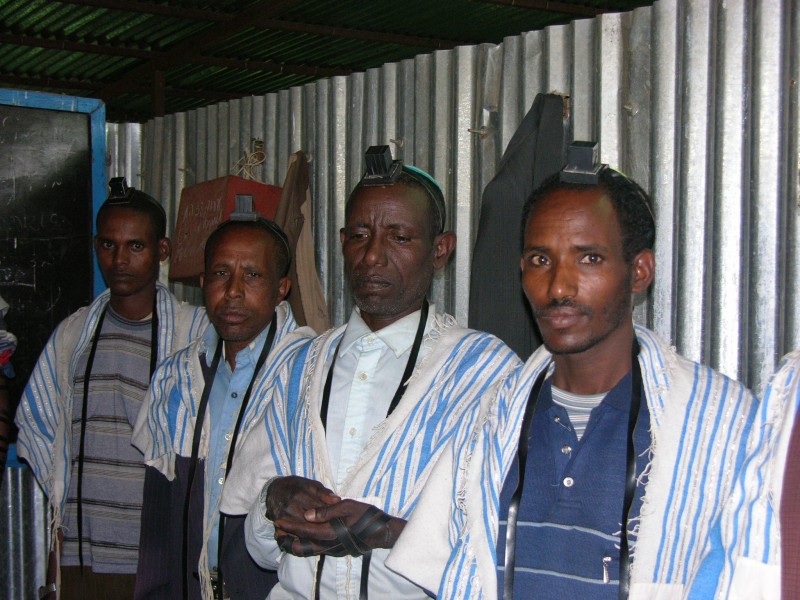David Harris

Ethiopian Protests: Federation Support for Ethiopian Israelis
As you are already aware, Ethiopian Israeli protestors and their supporters have staged large demonstrations in recent days, culminating in violent clashes with police. Prime Minister Netanyahu responded quickly, convening a special session with representatives of the Ethiopian Israeli community, including the soldier involved in the videotaped incident with Israeli police that triggered these events. The Knesset also convened a special session yesterday on this topic. We are appropriately concerned and continue to monitor the situation closely from our Israel office.
Below is some background information on Federation-supported efforts on behalf of this population that you may find useful.
In addition, the Myers-JDC-Brookdale Institute, funded in part by Federations, regularly publishes studies and reports on Ethiopian-Israeli integration. For more information, see this Quick Facts Sheet about young Ethiopians in Israel, and Israel’s Ethiopian Population: Progress and Challenges. Further details can also be viewed in this comprehensive report: Twenty Years Later: A Survey of Ethiopian Immigrants who have Lived in Israel for Two Decades or More.
Background
As a new minority population, Ethiopian Israelis have faced significant challenges integrating into Israeli society. And for more than three decades, Federations have committed substantial resources to addressing their needs. Although the protests of the last week have demonstrated that there is much more work to do, Federations’ efforts have yielded important results. The continued challenges to the Ethiopian Israeli community underscore that our work isn’t done.
For example, gaps in rates of employment have narrowed. Employment rates among both male and female Ethiopians are higher than among the nonimmigrant Jewish population. However, underemployment remains a pressing problem.
In addition, we are seeing a new native born generation of Ethiopian Israelis slowly beginning to advance as governmental and civic leaderships. There have been a number of Ethiopian Israelis elected to the Knesset, including one currently serving. Ethiopian Israelis are climbing the ranks of the IDF and Israel’s police force. Others have found success in the entertainment industry, particularly in music.
However, give the events of the past week, there is still more work that needs to be done to help them fully integrate into Israeli society.
Programs that Operate with Federation Support
- Federations have funded and continue to fund JDC, Jewish Agency and Ethiopian National Project (ENP) programs that work with the entire Ethiopian community—families, the elderly and youth from preschool through college—to help them integrate and succeed in their new home.
- PACT (JDC) is a comprehensive initiative focused on Ethiopian-Israeli preschoolers’ educational and developmental needs. Since the program began in 1998, the repeat rate of Ethiopian-Israeli kindergartners has fallen from 50 percent to 5 percent. This program currently reaches more than 10,000 children.
- Absorption centers (Jewish Agency) are the first homes in Israel for Ethiopian immigrants. They cushion the transition and help newcomers adjust to Israeli life, providing language classes, professional training and cultural support that meet the unique needs of this population.
- Youth Aliyah villages (Jewish Agency) provide structure, social services and remedial education for mostly at-risk Ethiopian-Israeli youth so they will have a strong foundation as they build their lives. Four of these villages are home to hundreds of Ethiopian children.
- Atidim (Jewish Agency and ENP) helps high-achieving Ethiopian-Israeli high school student’s access elite opportunities in the IDF and in the most competitive academic fields.
- Scholastic Assistance (ENP) provides academic enrichment to middle school students. The program builds self-esteem and leadership skills, and prepares students for success in high school.
- Youth Outreach Centers (ENP) provide safe space and structured activities for at-risk teens.
We have more to do. Over the coming months, we will be engaging in discussions with our partner agencies to evaluate what other steps we can take to help Ethiopian Israelis “complete the journey”.

